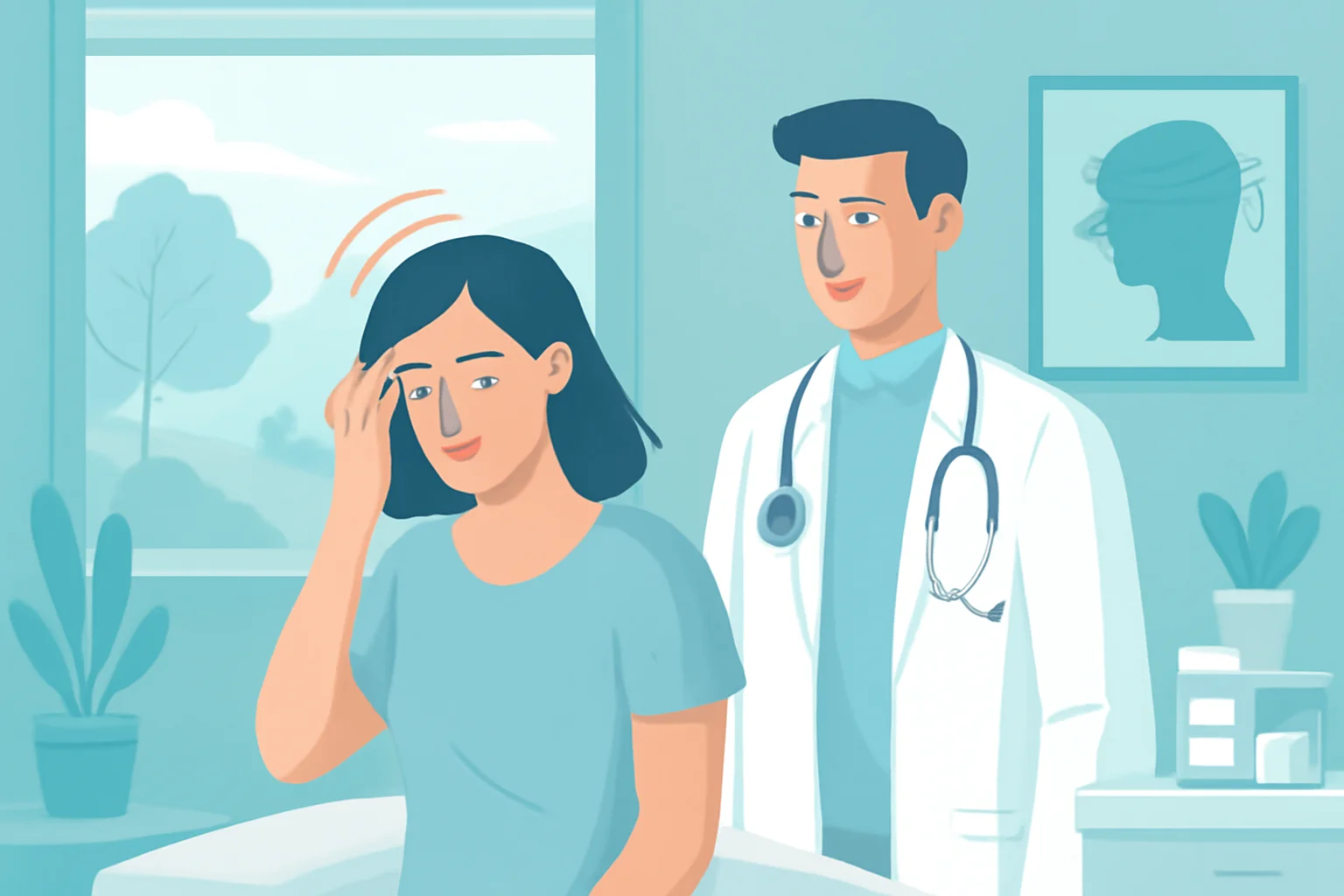
Headache or Dizziness? Causes and Solutions for Everyday Life
A headache and dizziness are two symptoms that can significantly impact many people’s lives. These complaints can arise from various causes and may indicate more serious health issues in many cases. Headaches can be sharp, dull, throbbing, or constant, while the sensation of dizziness can manifest in different forms: it may feel like the environment is spinning, or it can even be a loss of stability.
These symptoms can have not only physical but also psychological effects on those affected, as persistent complaints can deteriorate quality of life, reduce work capacity, and limit the ability to carry out daily activities.
Headaches and dizziness are often related, as both phenomena may indicate neurological and circulatory disorders. People frequently experience these symptoms together, which further complicates the identification of the underlying causes. The aim of this article is to better understand the relationship between headaches and dizziness, the possible causes, and treatment options.
Types and Causes of Headaches
There are many types of headaches, each linked to different causes. One of the most well-known forms is migraine, which is associated with intense pain, often accompanied by vomiting and sensitivity to light. Migraine headaches are often hereditary and are more common among women. The frequency of migraine attacks varies; some experience them monthly, while others may have them weekly.
Tension headaches are the second most common type, usually arising from stress, tension, or poor posture. This type of headache is generally dull and tight, felt on both sides of the head. Tension headaches can be long-lasting but are typically not as severe as migraines.
The third type is cluster headaches, which are extremely intense but short-lived. These attacks often occur at night, with pain starting suddenly, usually on one side. The causes of this type of headache are not completely understood, but stress and lack of sleep may play a role.
The causes of headaches encompass a wide range of factors, including physical, psychological, and environmental elements. Dehydration, poor nutrition, excessive caffeine consumption, hormonal changes, lack of sleep, and stress can all contribute to the development of headaches.
For a proper diagnosis, it is essential to pay attention to the frequency, duration, and accompanying symptoms of headaches. Doctors often request a detailed medical history and may use imaging procedures if necessary to rule out more serious problems.
Dizziness: Symptoms and Triggers
Dizziness is a sensation that signifies a loss of stability or the feeling that the environment is spinning. It has several forms, including vertigo, which is the most common type of dizziness and indicates a disturbance related to the body’s position. Vertigo often accompanies nausea and balance issues.
Another type of dizziness is presyncope, which refers to the state just before fainting. People often experience blurred vision and ringing in the ears before losing consciousness. This type of dizziness is generally a result of low blood pressure, dehydration, or rapid changes in body position.
The causes of dizziness can be traced back to numerous factors, including problems with the inner ear, such as benign paroxysmal positional vertigo (BPPV) or Meniere’s disease. These disorders affect the balance systems in the inner ear, leading to dizziness.
Low blood pressure, side effects of medications, migraine attacks, and anxiety can also contribute to dizziness. Individuals who frequently experience these symptoms often struggle with performing daily activities, as dizziness can significantly impact mobility and concentration.
During diagnosis, doctors conduct various tests, such as ear, nose, and throat examinations and neurological tests, to determine the cause of dizziness. The appropriate treatment plan depends on the underlying causes, aiming to alleviate symptoms and prevent recurrence.
The Relationship Between Headaches and Dizziness
Headaches and dizziness often occur together, complicating diagnosis and treatment. Many people find that their headache attacks are accompanied by dizziness, and this combination can be particularly burdensome. The connection between the two symptoms can be attributed to various causes.
One of the most common links is between migraines and dizziness. During migraine attacks, patients often experience balance disturbances, and the severity of the headache can exacerbate the sensation of dizziness. Migraine-related dizziness typically occurs during or after an attack, and migraine sufferers often struggle with additional symptoms such as light sensitivity and nausea.
Tension headaches can also bring about dizziness, especially when stress and tension levels are high. Muscle tension in the neck and shoulders due to stress and tension can contribute to the sensation of dizziness, thereby intensifying the headache as well.
Inner ear problems, such as Meniere’s disease, can also be associated with headaches, as the inner ear is responsible for balance perception. If inner ear disorders trigger headaches, the patient may experience dizziness as well.
It is important for individuals dealing with headache and dizziness symptoms to pay attention to the duration and intensity of their complaints. Medical examinations can help uncover the underlying causes and develop appropriate treatment methods.
**Warning:** This article does not constitute medical advice. In case of health problems, individuals should only heed the advice of medical professionals.

